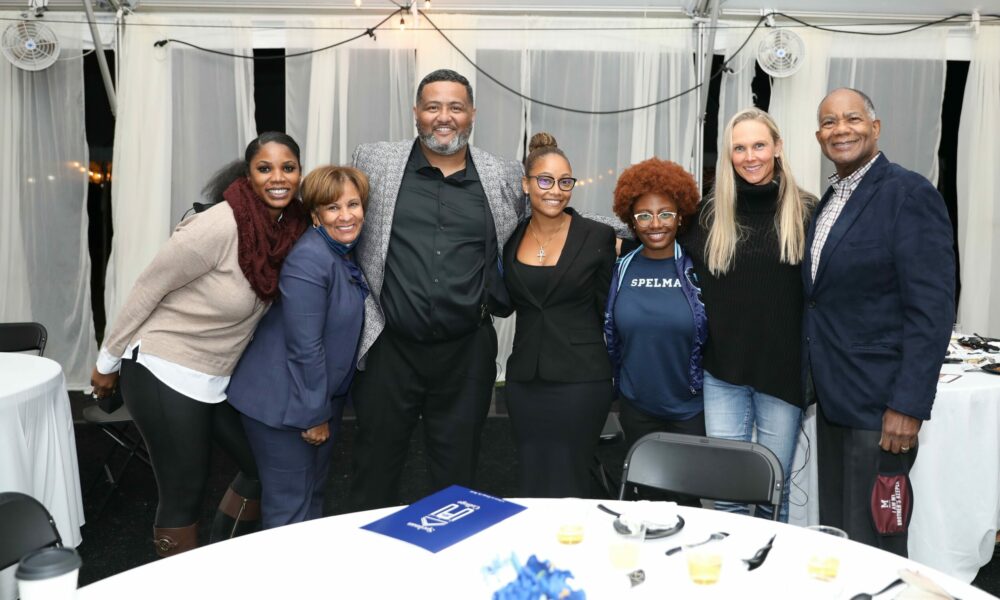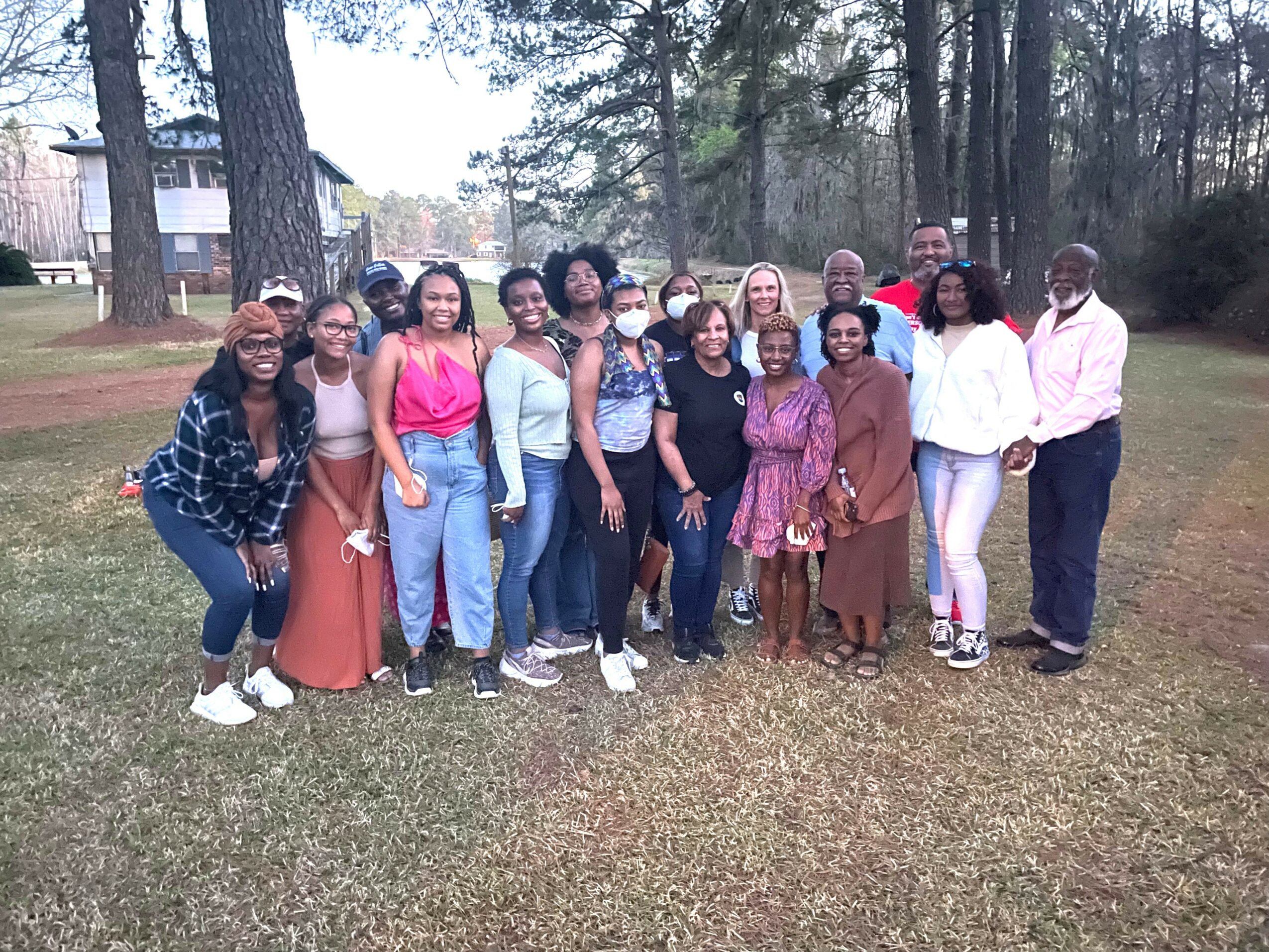

Today we’d like to introduce you to Sarah Eisner.
Hi Sarah, please kick things off for us with an introduction to yourself and your story.
In the summer of 2019, as Ta Nahesi Coates testified to the House of Representatives and our nation finally entered into semi-serious discussions about reparations for Black Americans, I made contact with the great-great-great-grandson of a man, Zeike Quarterman, who my great-great-great-grandfather, George Adam Keller, had enslaved. In a single email exchange with Randy Quarterman, whom Google allowed me to find and whose generosity and openness allowed me to investigate this issue, I was stunned to learn that Zeike Quartermans descendants still owned ten acres of land given to him by George Adam Keller after Sherman’s Field Order №15, in 1865, just outside of Savannah, Georgia. I also learned that although the Quartermans had been paying taxes on the land all along and no one disputed that they owned it, they had been denied access to it for decades by surrounding landowners and were unable to get help in obtaining access from the county. Now, the Quartermans were losing an acre of their land to the county for a parkway by eminent domain. How much more would the county take? What does it mean if we allow land reparations given to descendants of formerly enslaved people, back in 1865, to be taken away in 2019? What does it mean if, further, that family is underpaid? The county offered the Quartermans $2,500 for the parkway acre. The fair market value for the land is more like $10,000 an acre. The county claimed the Quartermans would need to produce a “clear title” to receive the fair market price. But, like all heirs’ property, it sits under a “cloud title.”
In July, I had no idea that the Quarterman family existed. In August, Randy and I began speaking daily about how to save the land, about which individuals might have locked them out of the land and why the county hadn’t been helpful, and what I could do to make some small amends on behalf of my family. I began with an apology. Although Randy and I both understood I was not personally guilty of an offense, I could still apologize sincerely for what people I was related to had done to people Randy was related to, and this apology could happen despite the fact that positive things had happened between the families too. The Keller family is huge and multi-branched and each member is, of course, an individual. Kellers and Quartermans had been co-workers and employers and neighbors in later years, and the Quartermans had built their current home on nearby land they bought at what appears to be a fair price from a Keller. We both understood that none of those things negated the things I apologized for. I also understood that an apology was not enough: I could do more. I began by offering the one document I had that included their family: an 1880 census that showed Zeike Quarterman living on the land between two different Keller families, and that listed Zeike’s children.
In September, Randy and I each asked family members to tell stories and share information, requested documents from the Chatham County Courthouse and the Georgia Historical Society, did a lot of Googling of online databases, and combed through boxes and boxes of collected data. We communicated daily. In this search, I found many more ways that I could help make reparations beyond with the Quarterman family, though I would begin there. Where could I help redirect scholarship funds created by family members with money made on plantation land, toward the Black community? Where could I acknowledge the past and tell the complicated true story of Black and white, good and bad, to help others understand? How would what I learned influence where I spend my money, where I give my money, how I feel about the land I personally own, and what I insist upon in our public school system and political system — where could I use whatever power I have to fight for Black wealth equity including Black ownership of American land? I should note here that this effort is not mutually exclusive to acknowledging the loss of Indigenous peoples’ land too.
Randy and I began to work together closely to find attorneys to help clear the title on his land. We are still working on that effort, but we quickly began to see that there was more we could do to support Black land preservation, and we eventually co-founded the Quarterman & Keller Foundation / The Reparations Project to raise money from other white people who understand the desire to redistribute wealth and support Black land preservation, Black education, and Black art/stories. Our first foray into the work was a series of scholarships at Spelman, Morehouse, and Clark Atlanta. Now, we fund almost 20 various scholarships in GA and in CA in an attempt to “connect the coasts” in repair. We also have given grants to Black farmers and land co-ops in Georgia, as well as funded tax payments for Gullah Geechee people in GA and SC.
Alright, so let’s dig a little deeper into the story – has it been an easy path overall, and if not, what were the challenges you’ve had to overcome?
Yes and no. My relationship with Randy, for me, has been one of the great joys of my life, and that development has felt almost effortless. Yes, there are times when we aren’t on the same page, but the deeply authentic connection we have has smoothed many rough patches in our work. We have certainly worked with folks who misunderstood our intentions or that we unintentionally did not serve in the right way, as two people-Black and White-working 3,000 miles from one another. We have had a long struggle with the heir’s property effort.
We don’t know exactly why it is so hard and long a road to clear title on a property that Randy’s family has owned for more than 100 years, and we often wonder who to blame for the holdup, or if there is anyone to blame, other than the incredibly entrenched system of white supremacy. It is hard to see things not change, where we want them to, or as quickly. But the interpersonal relationships with the scholars and professors we have worked with on reparations topics have been smooth and life-affirming. In short, our heart-to-heart interpersonal work has been more smooth than I could have imagined. The struggle seems to usually be with the bigger “system.”
Thanks for sharing that. So, maybe next you can tell us a bit more about your work?
I selected the artist/creative category because I’m most proud of my writing, and my pivot from a professional career in tech to the creative work of writing and creating an organization focused on racial repair. I think I’m best known for my communication and relationship skills, whether through writing or other, and my commitment to truth-telling and authenticity. I have had many careers. I studied political science in undergraduate school, and engineering in graduate school. I worked for big tech companies in Silicon Valley for a decade, then co-founded a few of my own.
But when I was in my forties I could afford to stop working in the tech world and go back to get another master’s degree in creative writing. I am proud that my essay writing and research on race, privilege, and motherhood led me to re-engage with my family history of enslavement and follow my heart in the work Randy and I do, and keep on with it, even when it feels like we are in this alone or butting up against a brick wall. I think the fact that I define love as truth-telling sets me apart–I try to be kind, always, but I don’t like the polite, easy way through things. I will always tell and demand the truth.
If we knew you growing up, how would we have described you?
Growing up, I was a California girl tomboy who loved soccer and swimming and playing football and tag on the neighborhood asphalt. I was also a girl with deep Georgia and South Carolina roots who came to Savannah and Hilton Head every summer to visit my maternal grandparents, both public school teachers in Savannah; to visit the family cemetery in Port Wentworth, the Baptist church, and finally the beach. It was the only vacation my family ever took, every summer, and I loved it that way. I was serious as a kid, never happy-go-lucky, but generally happy and really enjoyed having lots of friends, but I always wanted to know the truth about things, and always felt grounded in the reality that life wasn’t all sunshine.
I didn’t really suffer childish things too well. This may be in large part due to my experience having open heart surgery as a four-year-old. I remember it well and as an almost entirely positive experience. The doctors and nurses and my parents explained to me without drama what would be happening every step of the way, and I believe that gave me the strength to go through it without fear. It also showed me my mortality very early on. In addition, there is a history of mental illness in my family and I certainly experienced a sort of OCD depression beginning when I was very young, which manifested as an obsessive desire to prove I was good. I have since come to see this not only as a potential mental illness, but as a result of the culture in America, and I believe, an epigenetic “gift” passed down by ancestors who were also traumatized by white supremacy.
Contact Info:
- Website: reparationsproject.org
- Instagram: @reparationsprojectorg
- Facebook: https://www.facebook.com/reparationsprojectorg
- Youtube: https://www.youtube.com/channel/UC6oI8nT4VbnPa4DWomk17Iw












